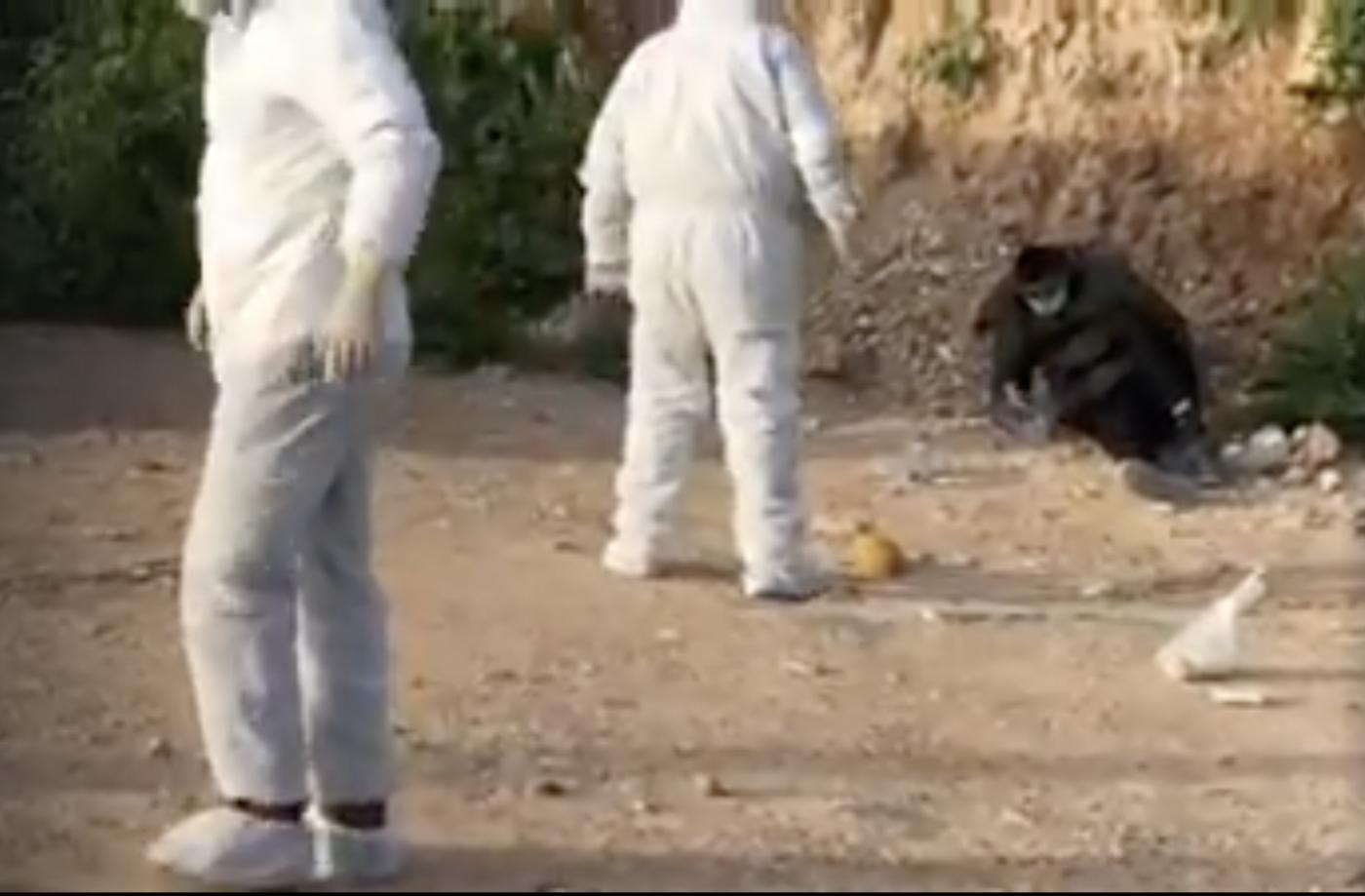'They dumped him like trash': Palestinian with suspected coronavirus symptoms thrown out of Israel

Labourer who later tested negative for coronavirus struggled to breathe in scene described as something out of a horror film
It was like a scene straight out of a horror film.
That's how 25-year-old Ibrahim Abu Safiya described the moment he saw someone lying on the ground near an Israeli checkpoint on the outskirts of Beit Sira village, west of Ramallah.
"We approached the man lying on the ground, and he looked terribly ill," Abu Safiya told Middle East Eye.
"He had an extremely high fever. He could barely move his body and he was struggling to breathe," Abu Safiya said.
The man lying on the ground was a Palestinian labourer who works in Israel. He told Abu Safiya that he had been showing signs of the coronavirus over the past four days, and was recently tested for the virus. That test later came back negative.
But before the man, allegedly a resident of Nablus, could receive his test results, his Israeli employer reportedly called the authorities, who picked him up and dropped him on the other side of the Beit Sira checkpoint, which connects central Israel and the occupied West Bank.
"He told us that they just threw him here on the ground and left him," Abu Safiya recounted.
"How could they do this to someone?" he asked. "It shouldn't matter if he's Palestinian, Israeli, or whatever. He's a human being."
Left stranded at the border
When Abu Safiya and his friend came upon the man, whose identity remains unknown, they began filming a video which has now gone viral on Palestinian social media.
Abu Safiya said he feared they were witnessing a repeat of events from just one day before.
He alleges that over the weekend, another Palestinian labourer, who suspected he himself had contracted the virus, travelled alone to the Beit Sira checkpoint in order to cross back into the West Bank.
When the man got there, he informed locals of his condition, upon which they called the Palestinian emergency services, who were supposed to send an ambulance to pick him up.
Just days earlier, Israel had approved the entry of thousands of Palestinian labourers into the country, under the condition that they had to stay in Israel for at least a month to prevent the spread of the virus in the West Bank.
As part of the agreement with the PA, upon their return, to be coordinated with Israeli authorities, any workers would be immediately put into a 14-day quarantine.
"But the fact that two workers have come, or been dumped here at the nearest checkpoint, with no notice, and clearly no coordination, is very worrying," Abu Safiya said.
While the PA spokesman Ibrahim Melhem announced that the ill worker was "handed" to Palestinian officials at the checkpoint on Monday, Abu Safiya said that was absolutely not the case.
"Neither the man today or yesterday were dropped off [by Israeli forces] to a [Palestinian] ambulance," he said, adding that in both cases, Palestinian medics took almost three hours to arrive from Ramallah to Beit Sira.
"The Palestinian government needs to properly coordinate with the Israeli side to prevent this from happening again," he said. "They can't just keep dropping people off here without any help."
'The true face of the Israeli occupation'
Despite his shock at seeing a sick man being "left to die" at a checkpoint, Abu Safiya said he wasn’t surprised by the incident.
"This is the true face of the Israeli occupation," he told MEE. "They kill us on a daily basis, so this isn't any different for them."
The video filmed by Abu Safiya and his friend went viral on Palestinian social media on Monday, as people expressed their outrage over the treatment of the worker.
Abu Safiya says the reasons it's struck a chord with so many people is because "it is evident of the larger problem of how Israel treats Palestinian labourers and [how] little they value our lives," he said.
"The Israeli government gave them permission to go to work, knowing the risks," he said. And for that reason, the government should also provide the workers with the proper protection.
Abu Safiya said he understood why so many workers chose to risk their health and safety to go work in Israel in the middle of the pandemic.
"They had to make the impossible choice of staying healthy, or letting their families starve," he said. "So many people chose to work so they can provide for their families. And we can’t blame them for that."
"But Israel also wants them to work, so they should take care of them. If they can't treat them in Israel, at least don’t throw them to die like animals," he said, the frustration evident in his voice.
"It's like we are slaves to them," he continued. "They use us when they need us, and when they are finished, they throw us away like trash."
Source: Akram Al-Waara, Middle East Eye

WRITE YOUR COMMENT